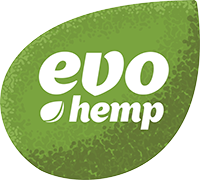Harnessing Hemp Protein: Benefits for Skin Health

In recent years, the health and wellness industry has seen a surge in interest surrounding natural and plant-based products. Among these, hemp protein has emerged as a superfood, celebrated for its myriad health benefits. While its role in supporting muscle growth and overall health is well-documented, hemp protein's potential benefits for skin health are equally remarkable yet less widely known. This article delves into how hemp protein can be harnessed to improve skin health, offering a natural and effective approach to skincare.
Understanding Hemp Protein
Hemp protein is derived from the seeds of the hemp plant. Unlike its psychoactive cousin, marijuana, hemp contains negligible levels of THC, the compound responsible for the "high" associated with cannabis use. Instead, hemp seeds are packed with high-quality protein, essential fatty acids, vitamins, and minerals, making them a powerhouse of nutrition.
The protein extracted from hemp seeds is a complete protein, meaning it contains all nine essential amino acids that the body cannot produce on its own. Additionally, hemp protein is rich in omega-3 and omega-6 fatty acids, particularly gamma-linolenic acid (GLA), which has anti-inflammatory properties. This unique combination of nutrients makes hemp protein not only beneficial for overall health but also particularly advantageous for skin health.
Nutritional Profile of Hemp Protein
To appreciate how hemp protein benefits the skin, it is essential to understand its nutritional composition. Hemp protein is a rich source of:
- Essential Amino Acids: These are crucial for the production of collagen and elastin, proteins that maintain the skin's structure and elasticity.
- Omega-3 and Omega-6 Fatty Acids: These fatty acids help to maintain the skin's lipid barrier, keeping it hydrated and supple.
- Gamma-Linolenic Acid (GLA): GLA has potent anti-inflammatory properties, which can help soothe irritated skin conditions such as eczema and psoriasis.
- Vitamins and Minerals: Hemp protein contains vitamins A, C, and E, which are antioxidants that protect the skin from oxidative stress and damage. It also contains zinc, which is vital for skin repair and regeneration.
Benefits of Hemp Protein for Skin Health
The nutritional profile of hemp protein translates into numerous benefits for the skin. Here are some of the key ways hemp protein can enhance skin health:
-
Hydration and Moisture Retention
The omega-3 and omega-6 fatty acids in hemp protein are essential for maintaining the skin's lipid barrier. This barrier helps retain moisture, preventing the skin from becoming dry and flaky. Regular consumption of hemp protein can lead to better-hydrated skin, which looks and feels smoother and more supple.
-
Anti-Inflammatory Properties
GLA, found abundantly in hemp protein, has powerful anti-inflammatory effects. This can be particularly beneficial for individuals with inflammatory skin conditions such as eczema, psoriasis, and acne. By reducing inflammation, GLA helps to calm the skin, reduce redness, and alleviate discomfort associated with these conditions.
-
Enhanced Skin Repair and Regeneration
The amino acids in hemp protein play a crucial role in the production of collagen and elastin. Collagen is the most abundant protein in the skin, providing structure and strength, while elastin allows the skin to maintain its elasticity. Adequate intake of amino acids through hemp protein can support the body's natural repair and regeneration processes, leading to healthier, more resilient skin.
-
Protection Against Oxidative Stress
Oxidative stress, caused by free radicals, is a major contributor to skin aging. The antioxidants in hemp protein, particularly vitamins A, C, and E, help to neutralize free radicals, protecting the skin from damage. This protection can slow down the aging process, reducing the appearance of fine lines, wrinkles, and age spots.
-
Even Skin Tone and Texture
Zinc, present in hemp protein, is essential for skin repair and regeneration. It helps to regulate oil production, which can prevent acne breakouts. Additionally, zinc promotes an even skin tone and texture by supporting the body's healing processes and reducing the likelihood of scarring and hyperpigmentation.
Hemp Protein for Specific Skin Conditions
-
Acne
Acne is a common skin condition that affects many people, especially during adolescence. The anti-inflammatory properties of GLA in hemp protein can help reduce the redness and swelling associated with acne. Additionally, the omega-3 fatty acids help balance oil production, preventing clogged pores and breakouts.
-
Eczema and Psoriasis
Eczema and psoriasis are chronic inflammatory skin conditions that can cause significant discomfort. The anti-inflammatory and moisturizing properties of hemp protein can help soothe the skin, reduce flare-ups, and improve overall skin barrier function. Consuming hemp protein regularly may lead to a reduction in symptoms and an improvement in skin texture.
-
Aging Skin
As skin ages, it loses elasticity and moisture, leading to wrinkles and fine lines. The amino acids in hemp protein support collagen production, helping to maintain skin elasticity and firmness. The antioxidants present in hemp protein protect against environmental damage, slowing the aging process and keeping the skin looking youthful.
Incorporating Hemp Protein into Your Skincare Routine
To harness the benefits of hemp protein for your skin, consider incorporating it into your diet and skincare regimen. Here are some practical tips:
-
Dietary Intake
The simplest way to benefit from hemp protein is to include it in your daily diet. Hemp protein powder can be added to smoothies, shakes, and baked goods. You can also sprinkle it over yogurt or oatmeal for a protein boost. Aim to consume a balanced amount daily to ensure you are getting adequate nutrients for your skin.
-
Topical Application
In addition to dietary intake, hemp protein can be used topically. Look for skincare products that contain hemp protein or hemp seed oil. These products can provide direct nourishment to the skin, helping to hydrate and protect it. DIY skincare enthusiasts can even create homemade masks and scrubs using hemp protein powder.
-
Consistency is Key
As with any skincare routine, consistency is crucial. Regular consumption and application of hemp protein will yield the best results over time. Make it a part of your daily routine to see noticeable improvements in your skin's health and appearance.
Choosing the Right Hemp Protein Products
With the growing popularity of hemp protein, the market is flooded with various products. Here are some tips for choosing the right hemp protein products for your skin:
-
Quality Matters
Opt for high-quality, non-GMO hemp protein products to ensure you are getting the best nutrients without harmful additives or pesticides. Check the labels for certifications and ingredient lists.
-
Purity
Choose products that contain pure hemp protein or hemp seed oil without unnecessary fillers or artificial ingredients. This ensures you are getting the full benefits of hemp protein.
-
Reputable Brands
Purchase from reputable brands that are transparent about their sourcing and manufacturing processes. Look for brands with positive reviews and a commitment to quality.
DIY Skincare Recipes with Hemp Protein
For those who prefer natural and homemade skincare solutions, here are a few DIY recipes using hemp protein:
-
Hemp Protein Face Mask
Ingredients:
- 1 tablespoon hemp protein powder
- 1 tablespoon honey
- 1 teaspoon aloe vera gel
Instructions: Mix all ingredients in a bowl until you get a smooth paste. Apply to your face and let it sit for 15-20 minutes. Rinse off with warm water and pat dry.
-
Hemp Protein Exfoliating Scrub
Ingredients:
- 2 tablespoons hemp protein powder
- 2 tablespoons brown sugar
- 1 tablespoon coconut oil
Instructions: Combine all ingredients in a bowl and mix well. Gently massage the scrub onto your face in circular motions. Rinse off with warm water and enjoy your smooth, exfoliated skin.
-
Hemp Protein Overnight Cream
Ingredients:
- 1 tablespoon hemp protein powder
- 2 tablespoons shea butter
- 1 teaspoon rosehip oil
Instructions: Melt the shea butter and mix in the hemp protein powder and rosehip oil. Let it cool and solidify. Apply a small amount to your face before bed and wake up to soft, nourished skin.
Potential Side Effects and Considerations
While hemp protein is generally safe for most people, it's essential to be aware of potential side effects and considerations:
-
Allergies
Some individuals may be allergic to hemp protein. If you experience any adverse reactions such as itching, swelling, or difficulty breathing, discontinue use and consult a healthcare professional.
-
Medication Interactions
If you are on medication or have any medical conditions, consult with your healthcare provider before adding hemp protein to your diet. Hemp protein can interact with certain medications, affecting their efficacy.
Conclusion
Hemp protein is a versatile and nutrient-dense superfood that offers numerous benefits for skin health. Its rich composition of essential amino acids, fatty acids, antioxidants, and minerals makes it an excellent addition to any skincare regimen. By incorporating hemp protein into your diet and skincare routine, you can harness its potential to hydrate, protect, and rejuvenate your skin.
As with any natural remedy, consistency and quality are key to achieving the best results. Choose high-quality hemp protein products, use them regularly, and be mindful of any potential side effects. With time and proper use, you may find that hemp protein becomes an invaluable part of your journey to healthier, more radiant skin.
- Tags: guides



